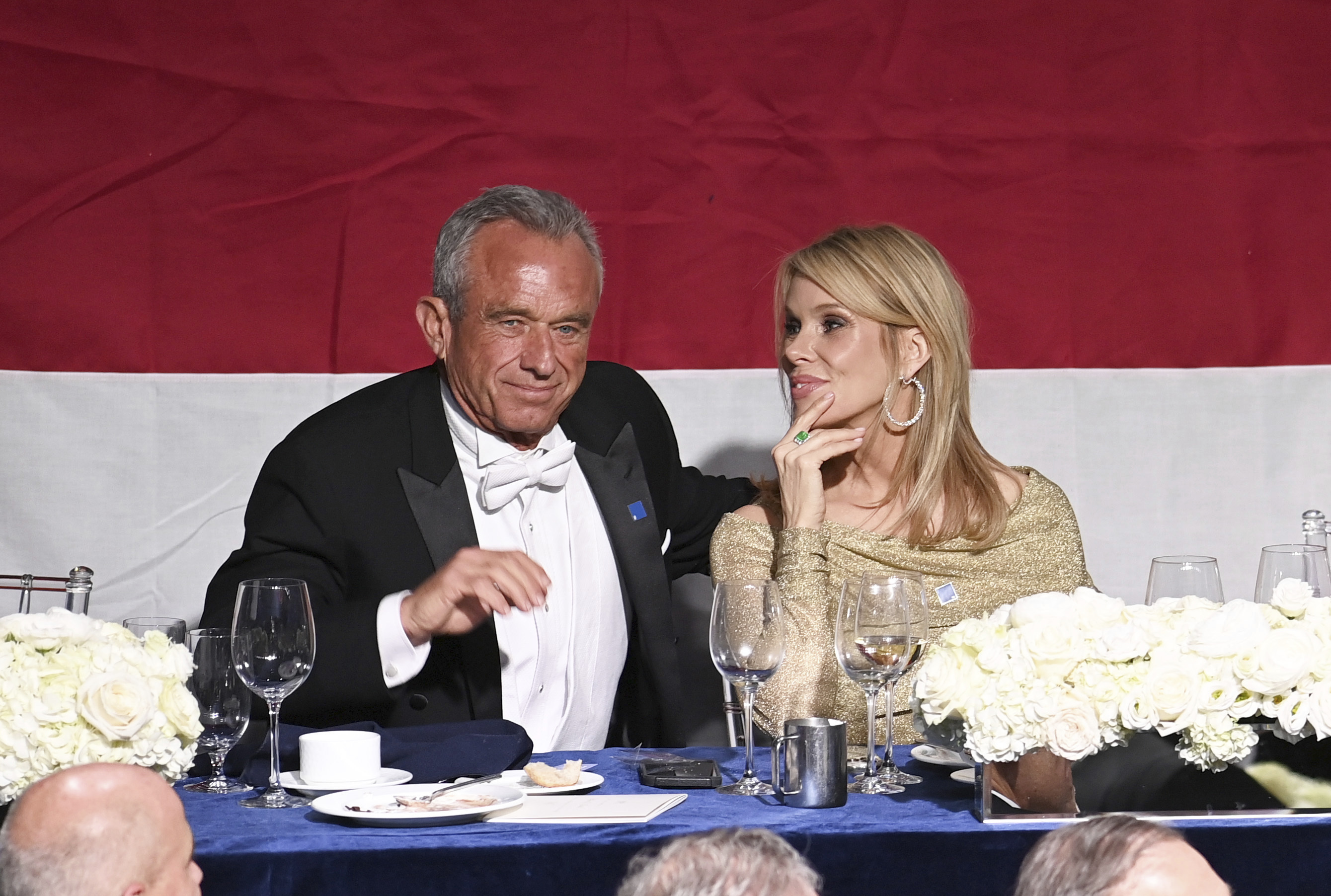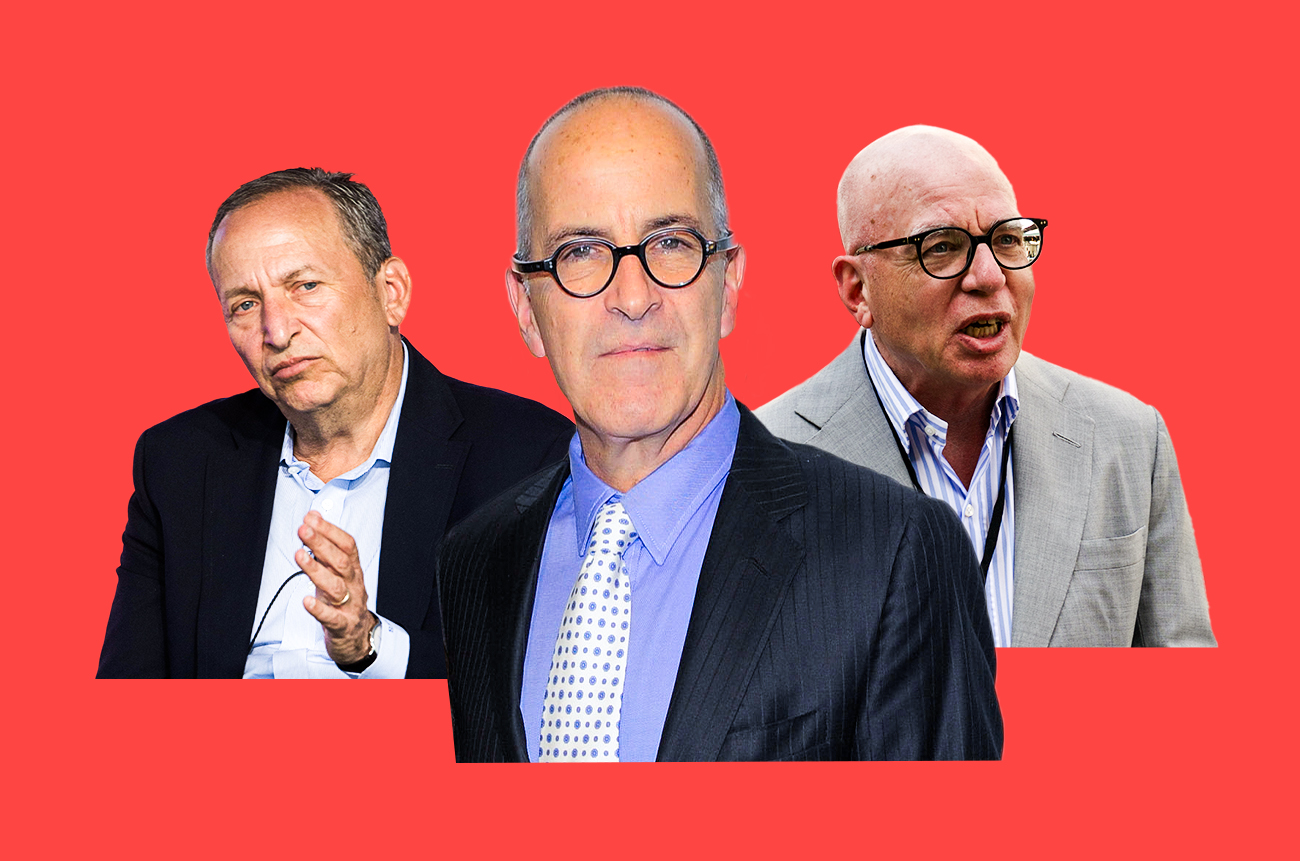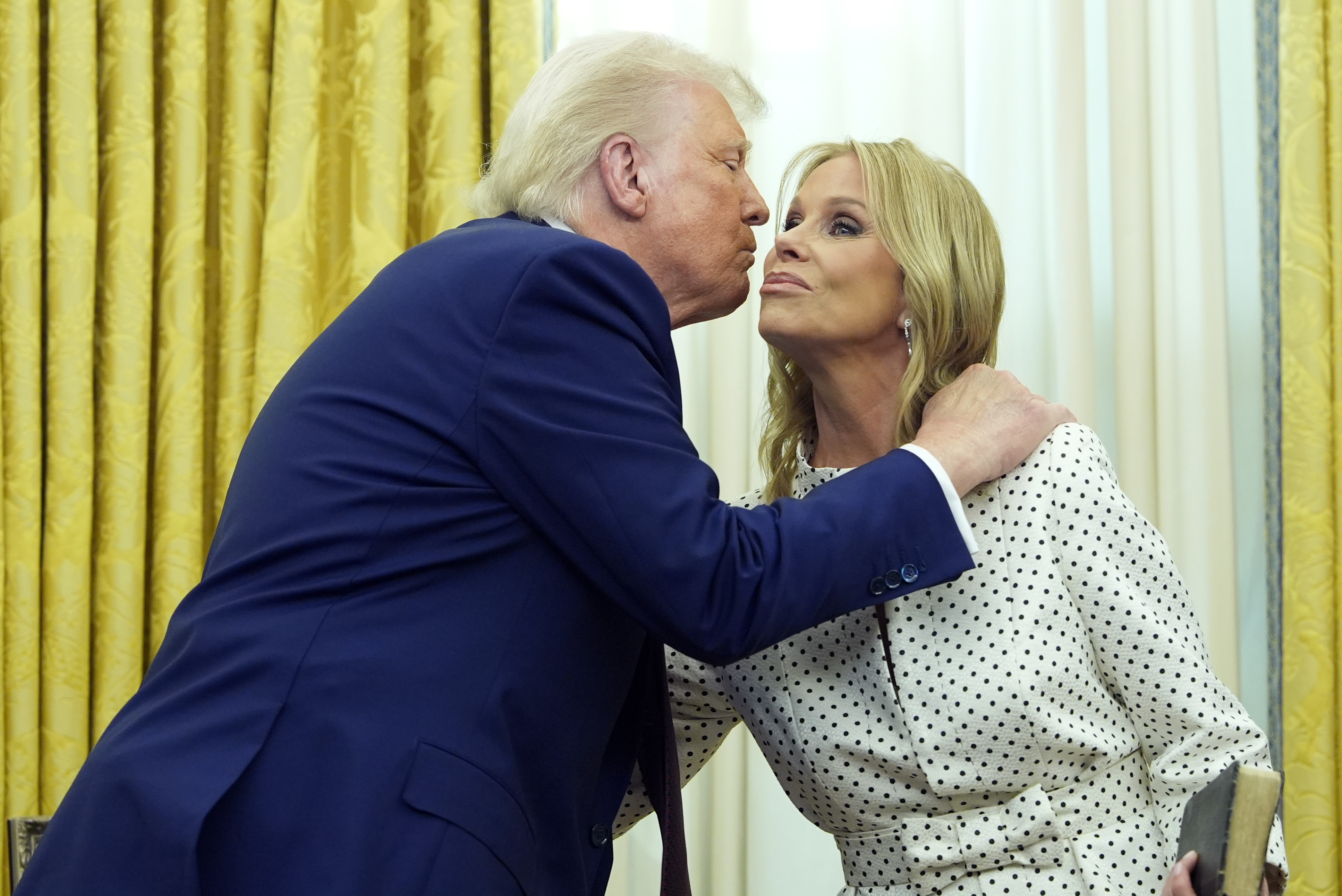Him?
Robert F. Kennedy Jr.’s name may not appear in Olivia Nuzzi’s forthcoming memoir, American Canto. But the 71-year-old secretary of the Department of Health and Human Services is at the burning core of Nuzzi’s return to the public eye this month, after her firing last year over a “digital affair” with the then-presidential candidate while she covered the 2024 campaign for New York magazine. The unfolding drama, following the publication of a lavishly photographed New York Times profile and Vanity Fair excerpt, is expected to grow more fraught when a reported collection of “sexually charged” text messages appears next month.
American Canto, as it appears in Vanity Fair, is profoundly unreadable, packed with prose that relies on a reader’s tolerance to witness humiliating forms of self-sabotage. Nuzzi describes outrunning a California wildfire while, for some reason, obsessing over Kennedy as she tries to escape. (She also appears to invite readers into conflating the fire she is fleeing with the devastating Palisades wildfire that destroyed the region two months later.) As much as American Canto reads like a diaristic slot machine of half-thoughts and self-absorbed efforts at profundity, it is also startlingly effective in its depiction of a woman deteriorating in the throes of potent desire. Here is how Nuzzi describes “the Politician.”
I loved his brain. I hated the idea of an intruder therein. Others thought he was a madman; he was not quite mad the way they thought, but I loved the private ways that he was mad. I loved that he was insatiable in all ways, as if he would swallow up the whole world just to know it better if he could. He made me laugh, but I winced when he joked about the worm. “Baby, don’t worry,” he said. “It’s not a worm.”
Again, him?
When I asked to help explain Kennedy’s appeal, sexologist and professor Pepper Schwartz told me: “I once heard a woman say that she thought Henry Kissinger was sexy.”
Setting aside for a moment, if you can, his outsized role in destroying the country’s public health system, Kennedy often appears to be as physically distended as Nuzzi’s writing, as if he were perpetually out of breath and heaving from “picking up roadkill [his] whole life.” He works out shirtless in jeans and once attracted a man with thunderous flatulence to attend a speaking engagement. His own family calls him a “predator.” How can such ferocious desire be attached to this man?
When I asked for help in explaining his appeal, Pepper Schwartz, a sexologist and professor at the University of Washington, told me, “I once heard a woman say that she thought Henry Kissinger was sexy.” Still, men, and especially men in elite circles, have always been able to sell themselves with supposed “intelligence, power, and poetic talent.”
“The fact that this is a powerful, perhaps charming, well-placed person all weaves together for them to also be found sexy,” Schwartz continued. “That anybody ever found Henry Kissinger sexy is proof.”
As it happens, Kennedy’s wife, the actress Cheryl Hines, released her own memoir this month, published by the right-wing powerhouse, Skyhorse. (American Canto‘s release was reportedly pushed back to avoid overlapping book tours with Hines.) Unscripted starts ploddingly, with Hines charting her path from modest Florida upbringing to mid-level stardom at Curb Your Enthusiasm, until she eventually meets Kennedy at a celebrity ski fundraiser. That Hines dedicates nearly all of Unscripted‘s second half to their marriage is perhaps an acknowledgement that Hines also appreciates that the same question looms over her personal life: This guy?
Unscripted, while far more demure in its portrait of a woman in lust, offers hints. Upon bumping into Kennedy for the second time, Hines writes:
I don’t know how I missed how blue his eyes are. I felt his magnetic energy. There were so many things I hadn’t noticed before. The instantaneous electric connection swept me along.
Later, after they became engaged:
He brought an unpredictable sense of adventure I had never experienced in my life. I love everything about him, and I knew we were meant to find each other in this lifetime, as odd a couple as we seemed.
[…]
We both brought something to the relationship that the other was lacking. I err on the side of caution and prudence. I need to know how deep the water is before I jump off the cliff. Bobby is the opposite.
Squint and you start to see the contours of Kennedy’s appeal. The essence of his attraction, according to the women who love him, is in the intoxicating cocktail of heady romance and risk he seems to offer—whether it’s nearly getting killed by a yak in Bhutan, as Hines recounts, or feverishly texting about taking metaphorical bullets for one another as Nuzzi tells it. And for a moment, it all seems a bit banal, yet another iteration of the age-old “bad boy” allure.

“He looked at you like he wanted to devour your soul,” Hines recalls a friend telling her.
But uneasiness creeps in when considering Kennedy’s sex appeal against the decades of infidelity allegations—including rumors of once having 43 “mistresses“—and extramarital affairs that are widely believed to have contributed to his ex-wife’s suicide. Suddenly, an overt carnality takes hold. As Hines recalls a friend telling her at a dinner early in her relationship with Kennedy:
“He just looked at you like he wanted to devour your soul.”
Nuzzi similarly suggests an insatiable appetite.
He was the mouse and the architect of his maze. The giver of his own pleasure and torment. He desired. He desired desiring. He desired being desired. He desired desire itself. I understood this just as I came to understand the range of his kinks and complexes and how they fit within what I thought I understood of his soul.
Here, an absurd polarity begins to take shape. We have the scion of a powerful political family, seemingly tormented by a maddening hunger. But where Nuzzi and Hines see sex appeal, for much of the country, Kennedy is a reckless conspiracy theorist, whose appetite for danger as the nation’s top health official will result in a sicker America. And it’s Kennedy’s family, as his cousin Tatianna Scholssberg writes in a devastating New Yorker essay that revealed her leukemia diagnosis, that understands this with the precise agony of a family informed by relentless tragedy.
As I tried to grasp the contours of Kennedy’s appeal, I couldn’t help but think of some of the men whose loser behavior littered Jeffrey Epstein’s latest email release. There’s former Treasury Secretary Larry Summers, soliciting a convicted sex offender for advice on matters such as how to get “horizontal” with a female economist he had been pursuing; Epstein’s brother asking about “photos of Trump blowing Bubba; the writer Michael Wolff acting as media adviser. These are powerful men whose ingratiation helped a sexual predator thrive with impunity.

Nuzzi and Hines remind me of the men in Epstein’s orbit, attracted to a different kind of “predator,” roadkill in a “freezer full of it.” Except that the real roadkill are innocent, and Nuzzi and Hines are not victims. As Vanity Fair’s new West Coast editor, Nuzzi has chosen to center her salacious affair as she returns to a day job. (Vanity Fair has since announced that it was reviewing its ties to Nuzzi following allegations by her former fiancé Ryan Lizza that she also once slept with yet another former source, who happened to be a powerful older politician, this time the former South Carolina Gov. Mark Sanford.) As for Hines, it is a distinct choice to go on national television to support a man’s pernicious anti-vaccine talking points.
“The very essence of romance is uncertainty,” Hines writes in Unscripted, quoting Oscar Wilde at least twice in her memoir to explain her devotion to Kennedy. But in doing so, she conveniently omits the rest of Wilde’s thoughts on the matter: “If I ever marry, I’ll try to forget the fact.”
Perhaps that’s what Hines is doing, too.




























